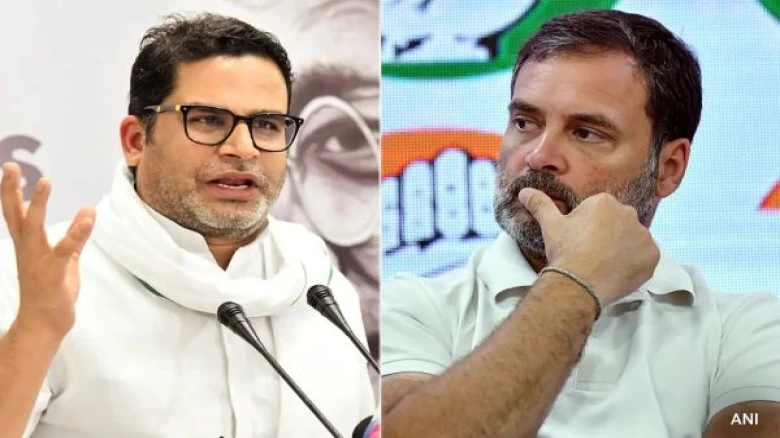Regional

Kishor highlighted internal party dynamics, suggesting that many Congress leaders feel constrained by Gandhi's centralised control, where decisions require his approval
Digital Desk: Political strategist Prashant Kishor offered candid advice to Rahul Gandhi, suggesting that he should contemplate stepping back if the Congress party fails to achieve its desired results in the upcoming Lok Sabha elections. In a recent interaction with PTI editors, Kishor highlighted that, despite being at the helm of the party for the past decade, Gandhi has struggled to deliver tangible outcomes and has shown reluctance to relinquish control or delegate leadership responsibilities.
"When you have been doing the same work for the last 10 years without any success, then there is no harm in taking a break... You should allow someone else to do it for five years. Your mother did it," he said, thinking back to Sonia Gandhi's 1991 choice to abstain from politics after her husband Rajiv Gandhi was killed and hand the harnesses to P. V. Narasimha Rao.
Kishor's remarks underscore a growing sentiment within the political sphere that Gandhi's leadership of the Congress party has been marred by constant challenges and electoral setbacks. He emphasized that Gandhi's tenure as the de facto leader of the party has been marked by a lack of significant progress or strategic shifts, despite numerous attempts to revive the organization.
"But it seems to Rahul Gandhi that he knows everything. Nobody can help you if you do not recognise the need for help. He believes he needs someone who can execute what he thinks is right. It is not possible," he said.
Kishor highlighted internal party dynamics, suggesting that many Congress leaders feel constrained by Gandhi's centralised control, where decisions require his approval. However, he also noted a counter-narrative where some leaders feel Gandhi did not take decisive action when needed, contributing to organisational stagnation.
Kishor's critique extends beyond Gandhi's leadership style to structural deficiencies within the Congress party itself. He pointed out longstanding issues with the party's functioning, which have contributed to its gradual decline in electoral relevance over the years. Despite acknowledging the party's enduring significance in Indian politics, Kishor emphasised the need for fundamental reforms to address these systemic challenges.
Leave A Comment